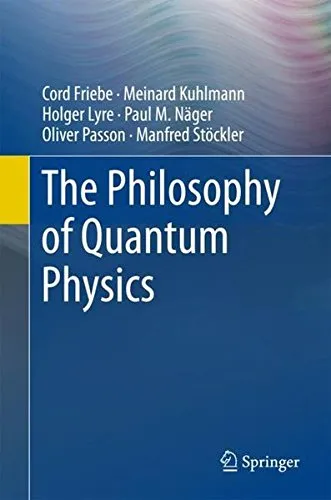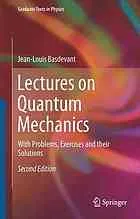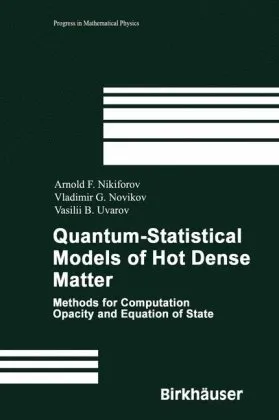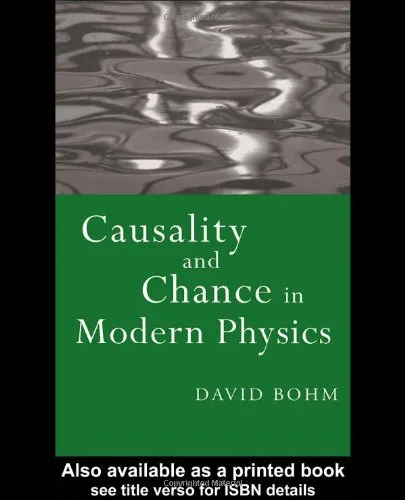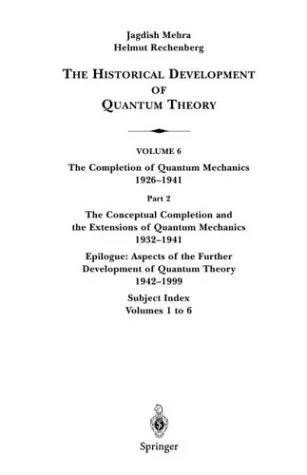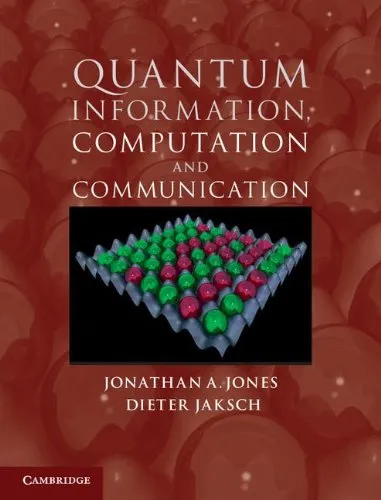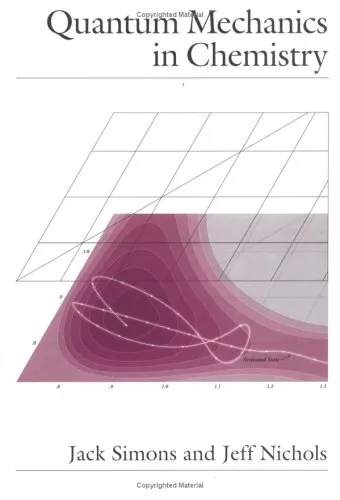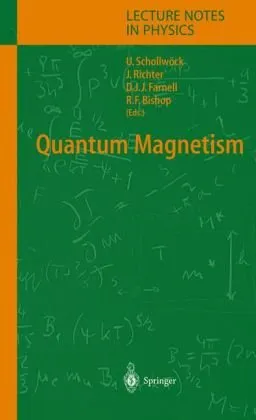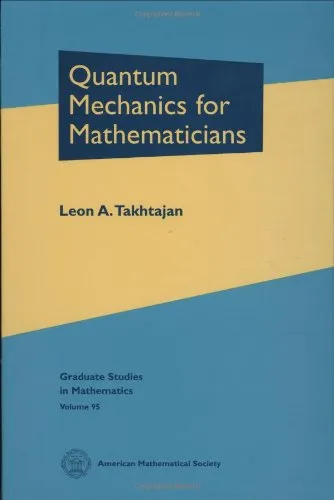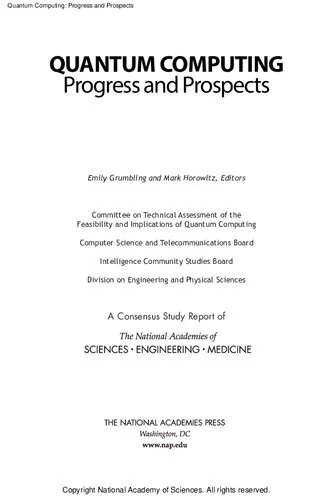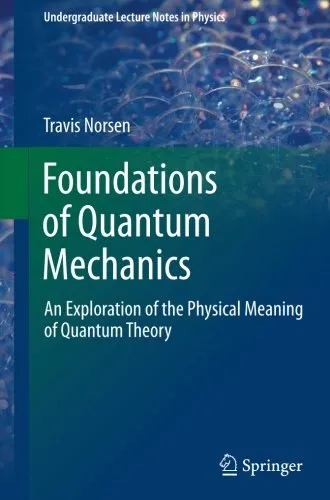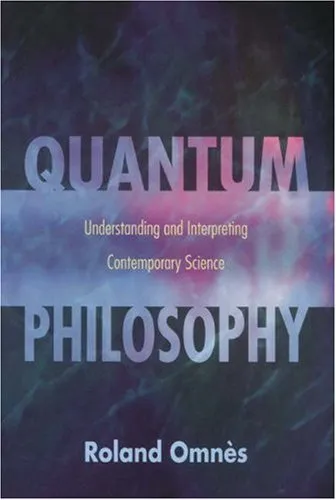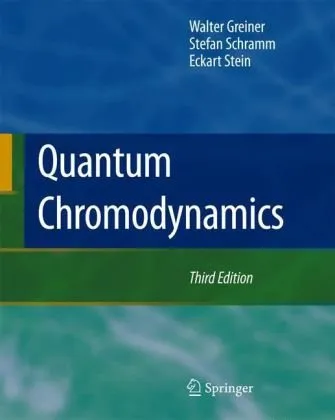The Philosophy of Quantum Physics
4.5
Reviews from our users

You Can Ask your questions from this book's AI after Login
Each download or ask from book AI costs 2 points. To earn more free points, please visit the Points Guide Page and complete some valuable actions.Related Refrences:
Welcome to the introduction of 'The Philosophy of Quantum Physics', a comprehensive book that delves deep into the intriguing and often mysterious connection between philosophy and quantum mechanics. Co-written by Cord Friebe, Meinard Kuhlmann, Holger Lyre, Paul M. Näger, Oliver Passon, and Manfred Stöckler, this work seeks to bridge the gap between the interpretative puzzles of quantum mechanics and the philosophical inquiry that these enigmas inspire. Designed for philosophers, physicists, and curious readers, this book offers a thought-provoking exploration into one of the most fascinating areas of contemporary science and philosophy.
Summary of the Book
'The Philosophy of Quantum Physics' presents a detailed examination of the fundamental questions raised by quantum theory and its philosophical implications. Quantum mechanics, a scientifically rigorous field, challenges classical notions of reality, causality, and observation, leading to paradigms that question the nature of existence itself. This book skillfully navigates these theoretical landscapes by discussing key quantum principles such as wave-particle duality, superposition, entanglement, and non-locality, while exploring how such principles reshape our conceptual understanding of nature.
A major focus of the book is on interpreting quantum mechanics. From the Copenhagen interpretation and Many-Worlds theory to relational quantum mechanics and QBism, each framework is analyzed not only for its explanatory power but also for the philosophical ramifications it entails. The co-authors address questions like: Is the quantum world deterministic or probabilistic? Does reality exist independently of observation? What role does consciousness play in shaping the physical universe? Through careful argumentation and illustrative examples, the authors invite readers to critically reflect on these profound issues.
Furthermore, this work emphasizes the interplay between scientific advancement and philosophical thought. As the authors argue, quantum mechanics represents more than a mere scientific revolution; it challenges entrenched metaphysical ideas and demands new ways of thinking about knowledge, reality, and existence—making the collaboration between physicists and philosophers essential for understanding its deeper meaning.
Key Takeaways
- Quantum mechanics is not just a set of equations but a profound conceptual framework with deep philosophical implications for our understanding of reality.
- Interpretations of quantum mechanics, such as the Copenhagen interpretation, Many-Worlds theory, and others, reflect diverse metaphysical perspectives with varying implications for the nature of the universe.
- The book explores the philosophical puzzles posed by quantum phenomena, including the measurement problem, wave function collapse, and the tension between locality and non-locality.
- Quantum theory changes our views on determinism, causality, and the independence of physical reality from human observation.
- The dialogue between physicists and philosophers is essential to address the epistemological and metaphysical questions arising from quantum mechanics.
Famous Quotes from the Book
"Quantum mechanics does not only describe the behavior of particles at the microscopic level; it challenges our deepest assumptions about the nature of existence and our role as observers."
"Reality, as suggested by quantum mechanics, is far from being an objective, static entity; it is a dynamic interplay of possibilities, actualities, and observations."
Why This Book Matters
'The Philosophy of Quantum Physics' holds significant relevance for both contemporary science and philosophy. As one of the most successful theories in physics, quantum mechanics has transformed technology, enabling advancements such as semiconductors, lasers, and quantum computing. At the same time, it has confronted us with profound conceptual and philosophical challenges that traditional thinking cannot fully address.
The book’s interdisciplinary approach highlights the necessity of combining scientific expertise with philosophical inquiry to tackle these challenges. In doing so, it caters to a wide audience—students of physics curious about metaphysical issues, philosophers eager to engage with cutting-edge science, and anyone intrigued by the mysteries of quantum theory. The insights shared by the authors will deepen your understanding of the multifaceted impact of quantum mechanics and its implications for the future of both science and human thought.
Free Direct Download
You Can Download this book after Login
Accessing books through legal platforms and public libraries not only supports the rights of authors and publishers but also contributes to the sustainability of reading culture. Before downloading, please take a moment to consider these options.
Find this book on other platforms:
WorldCat helps you find books in libraries worldwide.
See ratings, reviews, and discussions on Goodreads.
Find and buy rare or used books on AbeBooks.
1260
بازدید4.5
امتیاز0
نظر98%
رضایتReviews:
4.5
Based on 0 users review
Questions & Answers
Ask questions about this book or help others by answering
No questions yet. Be the first to ask!
